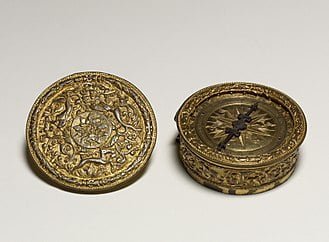Tunisia, a country rich in history and culture, has witnessed a fascinating evolution in its appreciation of luxury watches. From the early days of traditional timepieces to the modern masterpieces that grace the wrists of today’s elite, the journey of luxury watches in Tunisia reflects the nation’s blending of tradition with modernity.
A Glimpse into the Past: Traditional Timepieces
The love for timekeeping in Tunisia can be traced back to the days when pocket watches were considered symbols of prestige and sophistication. These early timepieces were often imported from Europe, particularly from France and Italy, and were cherished by the Tunisian elite. The intricate craftsmanship of these watches, with their delicate engravings and precise mechanisms, was highly valued, making them prized possessions that were passed down through generations.
In the early 20th century, wristwatches began to replace pocket watches, marking a significant shift in the way Tunisians perceived timepieces. The wristwatch was not just a functional accessory; it became a statement of style and status. Swiss brands, renowned for their precision and craftsmanship, started making their way into the Tunisian market, further solidifying the country’s affinity for luxury timepieces.
The Influence of Modernization: The Arrival of Global Brands
As Tunisia modernized, so did its taste in luxury watches. The mid-20th century saw an influx of global luxury brands into the Tunisian market. Swiss watchmakers, such as Rolex, Omega, and Patek Philippe, became household names among Tunisia’s affluent class. These brands were revered not only for their precision and reliability but also for their association with success and prestige.
The post-independence era of Tunisia brought about economic growth and a burgeoning middle class, which further fueled the demand for luxury watches. By the late 20th century, luxury watch boutiques began to spring up in major cities like Tunis and Sfax, catering to a clientele that was increasingly interested in owning a piece of horological excellence.
Contemporary Trends: Modern Masterpieces
In recent years, Tunisia’s luxury watch market has continued to evolve, reflecting global trends while also embracing local preferences. The modern Tunisian consumer is discerning, well-informed, and interested in both classic and contemporary designs. The demand for high-end watches has expanded beyond traditional Swiss brands, with luxury watchmakers from Germany, Japan, and even independent boutique brands gaining popularity.
One of the significant trends in Tunisia’s luxury watch market is the growing interest in limited editions and bespoke pieces. Collectors and enthusiasts are increasingly drawn to watches that offer exclusivity, whether through limited production runs or customization options. This trend highlights a shift towards a more personalized luxury experience, where the watch is not just a status symbol but a reflection of individual taste and style.
Additionally, there is a rising appreciation for the technical mastery behind modern luxury watches. Tunisian consumers are not just looking for a brand name; they are interested in the craftsmanship, the complexity of the movement, and the innovation behind the design. This has led to a greater interest in brands that push the boundaries of traditional watchmaking, incorporating new materials, advanced mechanics, and cutting-edge technology.
The Future of Luxury Watches in Tunisia
As Tunisia continues to grow and integrate into the global economy, the luxury watch market is poised for further expansion. The younger generation, with its increasing purchasing power and exposure to global trends, is likely to drive demand for both classic and avant-garde timepieces.
Moreover, the rise of online marketplaces and social media has made luxury watches more accessible to a broader audience in Tunisia. Enthusiasts can now explore and purchase luxury watches from around the world, while also connecting with a global community of watch collectors and aficionados.
However, despite these modern influences, the deep-rooted appreciation for traditional craftsmanship remains a cornerstone of Tunisia’s luxury watch culture. The Tunisian market will likely continue to value timepieces that blend the best of both worlds—honoring the legacy of traditional watchmaking while embracing the innovations of the modern era.
Conclusion
The evolution of luxury watches in Tunisia is a testament to the country’s ability to adapt and thrive in an ever-changing world. From the traditional timepieces of the past to the modern masterpieces of today, Tunisia’s journey through the world of luxury watches is one of growth, sophistication, and enduring passion. As the market continues to evolve, one thing is certain: luxury watches will remain a cherished symbol of elegance, craftsmanship, and status in Tunisia for generations to come.

